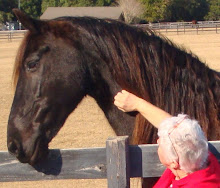If you read one of my previous posts, you know that I started "The Help", a novel from the perspective of maids in the 1960s in Mississippi. I was pained by the story and had a very difficult time getting through the beginning of it.
The Help is one of the best books I had read - particularly since I lived in Mississippi during that era.
The pain and fear continued throughout the book. I don't think maids in our little town ever wore uniforms, but they certainly were subjected to segregation. I went to an all-white school - Marks High School. The black school was called Marks Attendance Center. The King Store was a grocery on the other side of the tracks. Blacks did not shop at Piggly Wiggly, but a few ventured into the Kroger store. The only pharmacies were on the white side, but I never remember seeing a black person there.
I remember wondering why I couldn't play with "Ole Joe's" kids when they lived just down the road from us, but none of the segregation fight meant much to me.
Although I spent many early mornings in one of our clinics, I don't remember who was there. Mom could not take off from work to sit with me at the doctor's office; so she would drop me off as she went to work. When I was finished, I would walk the block to the Ben Franklin store where she worked. Sometimes she had to take off an hour to take me home - we lived 4.5 miles out of town - and would be docked for that time. Sometimes I simply slept in the back seat of the car until she got off work.
I was very familiar with the black side of town because my Dad was an alcoholic, the town drunk. He loved to sit in a garage over there and drink. None of us ever worried about my walking through that black-owned garage to the back to get Daddy. They sat on upturned Coca-Cola cases, smoked cigarettes and drank. Sometimes I was with him when he went to the bootlegger to buy more whiskey - that was in the black section of town. Sometimes the black women would give him vegetables from their gardens. He would stop to chat with them. I knew most of their names then.
The book was interesting and sad - so much fear, so much violence that is still present in Mississippi. In 2001 I went shopping for my sister-in-law at the cheap grocery store in town. My new car and my clothing were not the only things that set me apart from most of the people - I was white. They stared at me. A few of them spoke to me. I was uncomfortable wondering what they thought about me.
I was in the rioting crowds at Ole Miss when James Meredith entered there. The following summer, I actually had a class with him; we both struggled with World History, but I never spoke to him. I was too interested in drinking and having a good time.
I worked in Memphis when Martin Luther King Jr. was killed about 10 blocks away. Only then did I really become aware of what was happening...and took an integrationist point of view - one that my kin in Mississippi oppose today.
Back to the book: The Junior League was and still is out of my realm of being, but I've heard stories. I suspect this book is accurate in detail and in pain and fear but also in the loyal and loving relationships. I rejoiced in the freedom of people in the 1960s and in the book. It is well written, and the diaglogue is consistent with what I heard and some of what I still speak when I'm tired. Read it!
Subscribe to:
Post Comments (Atom)





1 comment:
I agree...it's a great book! THanks for your memories.
Post a Comment